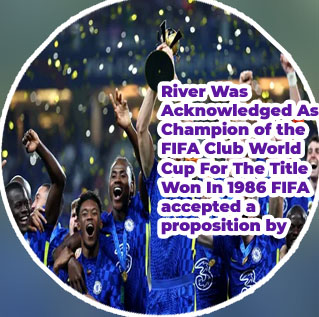
 |

|
Alexander arnoldMatch manchester cityEuro cup match todayAston villa evertonAnwar el ghaziFootball jerseys onlineTottenham hotspur gameBlackpool fc fixturesYesterday isl matchEverton tottenham
Fifa world cup champions
The FIFA World Cup is the most prestigious tournament in international soccer, with teams from around the globe competing for the championship title. To delve deeper into the history of FIFA World Cup champions, we have compiled a list of 4 articles that provide valuable insights into the world of soccer and the teams that have emerged victorious over the years. The Evolution of FIFA World Cup Champions: A Historical Analysis
"The Evolution of FIFA World Cup Champions: A Historical Analysis" offers readers a comprehensive look at the history of the FIFA World Cup, highlighting the evolution of the tournament and the teams that have emerged victorious over the years. This expertly researched book delves into the origins of the World Cup, tracing its roots back to the early 20th century and exploring how it has grown into the global phenomenon it is today. One of the key aspects of the book is its in-depth analysis of the strategies and tactics employed by past champions, shedding light on how different styles of play have evolved and impacted the outcome of the tournament. Readers will gain a deeper understanding of the key moments and players that have shaped the history of the World Cup, from the legendary performances of Pele and Diego Maradona to the tactical innovations of coaches like Rinus Michels and Vicente del Bosque. In addition to exploring the on-field action, the book also delves into the cultural and social impact of the World Cup, examining how the tournament has become a showcase for national pride and identity. From the iconic stadiums of Brazil to the passionate fans of Argentina, "The Evolution of FIFA World Cup Champions: A Historical Analysis" offers a fascinating look at the history of one of the world's most beloved Strategies of FIFA World Cup Champions: What Sets Them Apart from the RestThe FIFA World Cup is the ultimate stage for showcasing football talent on a global scale. In this book, the authors delve into the strategies employed by past World Cup champions that set them apart from the rest. By analyzing the tactics, mindset, and key decisions made by successful teams, readers gain valuable insights into what it takes to win the most prestigious tournament in football. One of the key factors highlighted in the book is the importance of team cohesion and camaraderie. Successful teams are able to function as a well-oiled machine, with players seamlessly working together towards a common goal. Additionally, the ability to adapt and innovate in response to changing game situations is another crucial aspect that distinguishes champions from the competition. Flexibility in tactics and a willingness to take calculated risks can often be the difference between success and failure on the world stage. Overall, this book provides a comprehensive analysis of the strategies that have led past World Cup champions to victory. By studying and implementing these key principles, aspiring teams can increase their chances of reaching the pinnacle of football success. Recommendations:
Behind the Scenes: Training Regimens of FIFA World Cup ChampionsThe training regimens of FIFA World Cup champions are a key aspect of their success on the field. Through rigorous training programs, these elite athletes are able to reach peak physical condition and perform at the highest level during the tournament. Research has shown that these training regimens are carefully planned and executed, focusing on improving strength, speed, endurance, agility, and technical skills. One of the key components of training for FIFA World Cup champions is strength training. This involves lifting weights, performing bodyweight exercises, and using resistance bands to build muscle and improve power. Additionally, these athletes participate in speed and agility drills to enhance their quickness and explosiveness on the field. Endurance training is another critical aspect of the training regimens of FIFA World Cup champions. This includes long-distance running, interval training, and high-intensity cardio workouts to improve cardiovascular fitness and stamina. These athletes must be able to maintain a high level of performance throughout the duration of the tournament, which can last for several weeks. Technical skills training is also a vital part of the preparation process for FIFA World Cup champions. This involves practicing passing, shooting, dribbling, and other fundamental soccer skills to ensure that these players are proficient in all aspects of the game. By honing their technical abilities, these athletes are The Impact of FIFA World Cup Victories on National Identity and PrideThe FIFA World Cup is more than just a competition between nations on the soccer field; it is a reflection of national identity and pride. Victories in the World Cup have a profound impact on how a country views itself and how the world views that country. Here are some key ways in which World Cup victories can influence national identity and pride:
|
|
IMA, INC. - bangkoksoccerschools.com
|